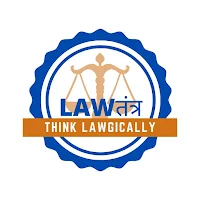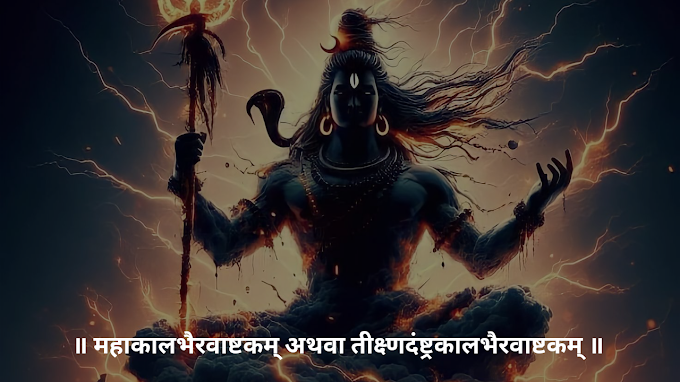Question 1: Define the rule of law. Evaluate the significance of rule of law in Indian criminal
justice system?
Answer: As per rule of law, it is required that the people should be governed by the accepted rules rather than the decisions that are arbitrarily taken by the rulers. For this, it is essential to keep in mind that the rules that are made should be general and abstract, known and certain and it should apply equally to all individuals. Legal limitation on government is the essential attribute of constitutionalism. Rulers are not above law under the concept of constitutionalism, government power is divided with laws enacted by one body and administered by another and for that an independent judiciary exists to ensure laws.[2]
Concept of Rule of Law
The originator of the concept of rule of law was Sir Edward Coke the Chief Justice in James I Reign.
The concept of rule of law is of old origin. Greek philosophers such as Plato and Aristotle discussed the concept of rule of law around 350 BC. Plato wrote Where the law is subject to some other authority and has none of its own, the collapse of the state, in my view, is not far off; but if law is the master of the government and the government is its slave, then the situation is full of promise and men enjoy all the blessings that the gods shower on a state. Aristotle wrotelaw should govern and those who are in power should be servant of the laws.
The derivation of the phrase ‘ Rule of Law’ is from the French phrase ‘la principe de legalite which implies principle of legality. By this phrase it refers to a government based on principles of law and not of men. One of the basic principles of Constitution is rule of law and this concept is up to standard in both India and America Constitution.
The doctrine of rule of law is the entire basis of Administrative law. As discussed by Aristotle, the concept of rule of law is grounded in the ideas of justice, fairness and inclusiveness. Today, an intricate chain of fundamental ideas is incorporated in rule of law which further encompasses equality before law, equal treatment before the law for government, independence of judiciary, consistency, transparency and accountability in administrative law.
Meaning of Rule of Law
To simply understand the meaning of rule of law, it means that no man is above law and also that every person is subject to the jurisdiction of ordinary courts of law irrespective of their position and rank.
The term ‘rule of law’ is originated from England and India has taken this concept. The concept of rule of law further requires that no person should be subjected to harsh or arbitrary treatment. The word ‘law’ in rule of law means that whether he is a man or a society, he must not be governed by a man or ruler but by law. In other words, as per Article 13 of the Indian Constitution rule of law means law of land.
According to Black’s Law Dictionary: “Rule of Law†means legal principles of day to day application, approved by the governing bodies or authorities and expressed in the form of logical proposition.
According to Oxford Advance Learner’s Dictionary: “Rule of Law†means the situation in which all the citizens as well as the state are ruled by the law.
Postulates of Rule of Law
In 1885, Professor A.V Diceydeveloped this concept of Coke and propounded three principles or postulates of the rule of law in his classic book ‘Law and the Constitution.’ According to Professor A.V Dicey, for achieving supremacy of law three principles of postulates must be followed which are as follows:
·Supremacy of law,
·Equality before law and
·Predominance of Legal Spirit
1. Supremacy of law
As per the first postulate, rule of law refers to the lacking of arbitrariness or wide discretionary power. In order to understand it simply, every man should be governed by law.
According to Dicey, English men were ruled by the law and the law alone and also where there is room for arbitrarinessand that in a republic no less than under a monarchy discretionary authority on the part of the Government must mean insecurity for legal freedom on the part of its subjects. There must be absence of wide discretionary powers on the rulers so that they cannot make their own laws but must be governed according to the established laws.
2. Equality before law
According to the second principle of Dicey, equality before law and equal subjection of all classes to the ordinary law of land to be administered by the ordinary law courts and this principle emphasizes everyone which included government as well irrespective of their position or rank. But such element is going through the phase of criticisms and is misguided. As stated by Dicey, there must be equality before law or equal subjection of all classes to the ordinary law of land. French legal system of Droit Administrative was also criticized by him as there were separate tribunals for deciding the cases of state officials and citizens separately.
3. Predominance of Legal Spirit
According to the third principle of Dicey, general principles of the Indian Constitution are the result of the decisions of the Indian judiciary which determine to file rights of private persons in particular cases. According to him, citizens are being guaranteed the certain rights such as right to personal liberty and freedom from arrest by many constitutions of the states (countries). Only when such rights are properly enforceable in the courts of law, those rights can be made available to the citizens. Rule of law as established by Dicey requires that every action of the administration must be backed and done in accordance with law. In modern age, the concept of rule of law oppose the practice of conferring discretionary powers upon the government and also ensures that every man is bound by the ordinary laws of the land as well as signifies no deprivation of his rights and liberties by an administrative action.[4]
Rule of Law Under Indian Constitution
In order to develop Indian democracy, rule of law has played a great role. At the time of framing of Constitution, the framers had two options i.e. USA and England. Some of the provisions were adopted from USA and some of them were adopted from England. Rule of law was adopted from England by our constitutional fathers and many provisions were incorporated in the Indian Constitution. Indian Constitution is considered to be supreme and no one is above Indian Constitution. Rule of law is also given impliedly in the preamble and such concept is enshrined in Part III of the Indian Constitution.
In case of violation of such rights, one can approach Supreme Court or High Court under Article 32 and 226 of the Indian Constitution. The Constitution of India is enriched with the principles of law i.e. justice, equality and liberty. Any law made by the Central government or State government must be complied in accordance with the Constitution of India. If any law made by the legislature contravenes with the provisions of the Constitution then such law will be declared void.
Under Article 32 of the Indian Constitution, the Supreme Court has the power to issue writs in the nature of Habeas Corpus, mandamus, prohibition, quo warranto, and certiorari. The power of judicial review is also given to Supreme Court in order to prevent any ultra vires law so as to preserve ‘Rule of law’.
Role of Indian Judiciary
There are a plethora of cases where the concept of rule of law was discussed and came into light. Some of the cases are as follows:
ADM Jabalpur v. Shivkant Shukla [5]
This case is also known as “Habeas Corpus caseâ€. It is one of the most importantcase when comes to rule of law. The question that was raised before the hon’ble court was that whether there was any rule of law in India apart from Article 21 of the Indian Constitution. It was in context relating to the proclamation of emergency where the enforcement of Articles 14, 21 and 22 were suspended.
Hindi
कानून का नियम या कानून का नियम सर्वोपरि है (कानून का नियम) का मतलब है कि कानून और यह सभी लोगों के लिए समान रूप से लागू है।
कानून के शासन का मुख्य सिद्धांत है - कानून के समक्ष सभी लोगों की समानता। भारत में, इसे उसी अर्थ में अपनाया जाता है जिस तरह से इसे अंग्रेजी-अमेरिकी कानून में अपनाया जाता है। भारतीय संविधान घोषित करता है कि प्रत्येक नागरिक के लिए केवल एक कानून होगा जो समान रूप से लागू होगा। किसी को भी जन्म, जाति आदि के कारणों का विशेषाधिकार नहीं होगा (अनुच्छेद 14)। एक राज्य में, यदि कोई वर्ग विशेषाधिकार प्राप्त है और अन्य लोग इससे वंचित हैं, तो कानून के शासन को वहां नहीं बुलाया जा सकता है। इसलिए, प्राचीन राज्यों में या मध्य युग के सामंती समाज में, जहां शासक वर्ग और आम लोगों के अधिकारों में अंतर था, कानून की समानता नहीं थी। उदाहरण के लिए, रोम के राज्य के कानून में, हम पेट्रीशियन (उच्च वर्ग) और प्लेबियन (आबादी) और रोमन नागरिकों और पेरेरेग्रीन (विजित देश के निवासी) के अधिकारों के बीच अंतर पाते हैं। गुलामी भी विधि द्वारा समर्थित थी। भारत में प्रत्येक व्यक्ति पर, चाहे वह राजा हो या गरीब, देश का सामान्य कानून समान रूप से लागू होता है और सभी को साधारण न्यायालय में समान न्याय मिलता है। राजनीतिक और अंतर्राष्ट्रीय पारस्परिक गरिमा के संदर्भ में इस नियम के कुछ अपवाद हैं। इस प्रकार, राष्ट्रपति और राज्यपाल को देश के साधारण न्यायालय द्वारा दंडित नहीं किया जा सकता (अनुच्छेद 361 (1)) किसी विदेशी देश का राजा, राष्ट्रपति या राजदूत न्यायालय के क्षेत्राधिकार से बाहर है (अनुच्छेद 51)।
भारतीय संविधान में, कानून के संरक्षण की समानता केवल देश के नागरिकों को ही नहीं दी गई है, बल्कि विदेशियों को भी समान रूप से दी गई है, जाति, धर्म, वर्ण, जन्म स्थान आदि के बावजूद, पुरुषों और महिलाओं का अधिकार भी है। विभेदित नहीं (अनुच्छेद 15)। सभी नागरिकों को आजीविका या सरकारी नियुक्ति में समान अवसर का अधिकार है (अनुच्छेद 16)। अस्पृश्यता पूरी तरह से प्रतिबंधित कर दी गई है (अनुच्छेद 17)। सैन्य और शैक्षिक उपाधियों के अलावा, राज्य अपने नागरिकों को अन्य डिग्री नहीं दे सकता (अनुच्छेद 18)। कानून द्वारा निर्धारित अपराध के लिए एक नागरिक को केवल एक बार दंडित किया जा सकता है (अनुच्छेद 20)। मृत्यु दंड या कारावास किसी भी व्यक्ति को केवल वैध तरीके से दिया जा सकता है (अनुच्छेद 21), केवल एक संकट में असाधारण परिस्थितियों में सरकार किसी को भी बिना मामला दर्ज किए गिरफ्तार कर सकती है (अनुच्छेद 19 (2))।
संविधान द्वारा प्रदत्त अपने मौलिक अधिकारों के हनन पर नागरिक अदालत में सरकार के खिलाफ मामला चल सकता है। संविधान निर्देश देता है कि राज्यों और देश के सर्वोच्च न्यायालय के उच्च न्यायालय इन मौलिक अधिकारों की रक्षा करते हैं। निष्पक्ष और निडर न्यायाधीशों द्वारा न्याय किया गया है। उनके आदेशों का पालन करना सरकार का कर्तव्य है। निष्पक्ष और स्वतंत्र समाचार पत्र और जागरूक जनमत लोगों के प्रहरी हैं।
- Sol DU online exams from March 15, 4 Important questions
- farmer-protest-live-updates
- CAT2020: Read these important things before going to the exam hall
- Modi government gave big relief, Small Business
- New farm laws and conflict between Govt. & Farmers
- Struggle in Drafting Constitution
- Defamation and IT Act







0 Comments
Please do not enter any spam link in the comment box.